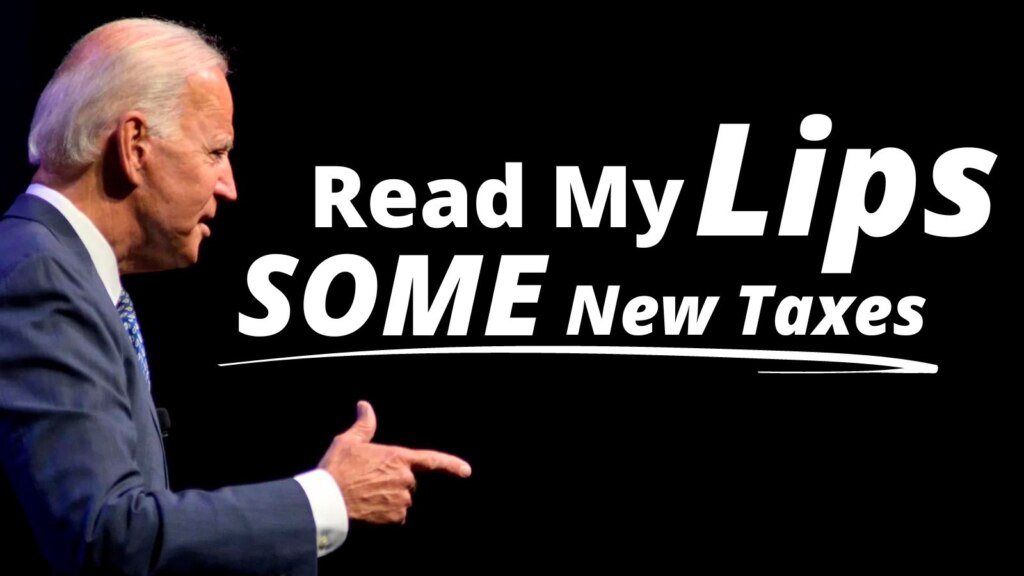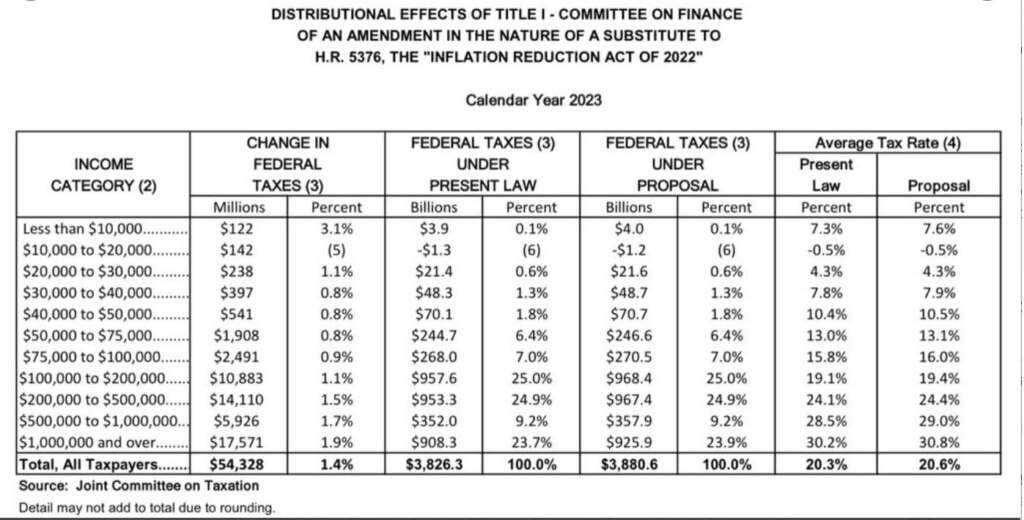Another Bad Idea: Trying to Fight Inflation By Raising Taxes
"Aside from doing nothing to address what the bill's name says it will address, the bill actually does do some things – spend more and raise taxes."
“Inflation is as violent as a mugger, as frightening as an armed robber and as deadly as a hit man.” – President Ronald Reagan
If there is something that big government supporters love to do, it is to craft a piece of legislation and give it a name that suggests it will do something entirely different than what it actually would. That is exactly what has happened with the recently proposed Inflation Reduction Act, an act which has little to do with reducing inflation.
An independent analysis of the study found that the bill’s impact on inflation is statistically indistinguishable from zero.
Aside from doing nothing to address what the bill’s name says it will address, the bill actually does do some things – spend more and raise taxes. The bill would allow for spending on about $370 billion on new environmental and climate initiatives.
This would all be paid for by raising taxes and expanding the IRS to increase tax enforcement.

Despite promises from President Biden that he will not raise taxes on those making less than $400,000 a year, the Inflation Reduction Act does exactly that. $16 Billion of the bill’s spending would come from households making less than $200,000 and another $14 billion from households earning between $200,000 and $500,000.
The chart below, from the nonpartisan Joint Committee on Taxation, shows just how much you could expect your taxes to go up.

At the root of this proposal lies the cold hard truth folks in Washington don’t want to hear – we can’t spend our way out of inflation.
Instead of selling the American people a boondoggle, leaders in Washington should work to cut the regulations making inflation worse and finally return to fiscal responsibility.
For Liberty,
Tanner Avery
The Latest
Calls for Housing Reforms
A few months after we published the Montana Zoning Atlas, in which we made policy recommendations to local officials, a Missoula City Council member published an op-ed in the Missoulian echoing our calls to restore landowners’ freedom to build two-to-four family housing.
“The city can re-legalize the missing middle housing alongside property owners by restoring their freedom to convert properties into multi-family housing units.” – Council Member Daniel Carlino
Our Take: This is just further evidence of just how far of a reach our report has been for people on both sides of the aisle. We will continue to drive forward the growing consensus that strict local zoning regulations are making Montana’s housing crisis worse, and must be addressed.
More Spending, More Problems
Helena City Commissioner, Sean Logan, recently took to Facebook to explain the history of assessments that are charged for the services not covered by general property tax levies in Helena. Here is a snapshot:
Wastewater Residential Rates:
FY18 $5.95 per hookup per month → FY21 $9.73 phpm = 63.5% increase
Street Maintenance Residential Rates:
FY18 $160.71 → FY21 $206.16 = 28.3% increase
Our Take: All too often, city and county governments raise assessments on services as a way to cover reckless spending. Government will always find ever more creative ways to generate revenue, whether through property taxes, assessments, fees or something else. This is why it is so important to place responsible limits on government spending growth as the first step to getting taxes under control.
Cutting Housing Red Tape
This week, Governor Gianforte and Department of Environmental Quality (DEQ) Director Chris Dorrington announced Montana is streamlining subdivision review processes and cutting red tape to accelerate the development of affordable, attainable housing. The move would eliminate duplicative reviews that have led to DEQ backlogs.
Our Take: This welcome change is the first of many that are aimed at cutting unnecessary red tape. We congratulate the Governor and Director Dorrington for this first step, and we look forward to collaborating with them on other ways we can reduce barriers to housing.
